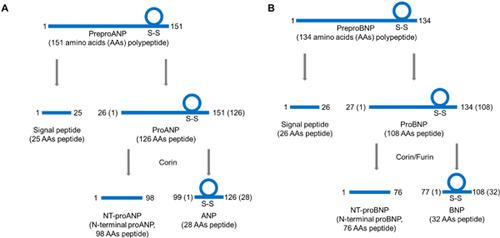Current Topics in Medicinal Chemistry ( IF 3.4 ) Pub Date : 2020-11-30 , DOI: 10.2174/1568026620666201013154326 Yana Lerner 1 , Wessal Hanout 1 , Shulamit Fluss Ben-Uliel 1 , Samar Gani 1 , Michal Pellach Leshem 1 , Nir Qvit 1

|
Cardiovascular diseases (CVDs) are the leading global cause of death, accounting for more than 17.6 million deaths per year in 2016, a number that is expected to grow to more than 23.6 million by 2030. While many technologies are currently under investigation to improve the therapeutic outcome of CVD complications, only a few medications have been approved. Therefore, new approaches to treat CVD are urgently required. Peptides regulate numerous physiological processes, mainly by binding to specific receptors and inducing a series of signals, neurotransmissions or the release of growth factors. Importantly, peptides have also been shown to play an important role in the circulatory system both in physiological and pathological conditions. Peptides, such as angiotensin II, endothelin, urotensin-II, urocortins, adrenomedullin and natriuretic peptides have been implicated in the control of vascular tone and blood pressure as well as in CVDs such as congestive heart failure, atherosclerosis, coronary artery disease, and pulmonary and systemic hypertension. Hence it is not surprising that peptides are becoming important therapeutic leads in CVDs. This article will review the current knowledge on peptides and their role in the circulatory system, focusing on the physiological roles of natriuretic peptides in the cardiovascular system and their implications in CVDs.
中文翻译:

利钠肽是发现心血管疾病的肽类药物的基础
心血管疾病(CVD)是全球主要的死亡原因,2016年每年导致超过1760万人死亡,到2030年,这一数字预计将增长到2360万。尽管目前正在研究许多技术来改善心血管疾病。 CVD并发症的治疗结果,仅批准了几种药物。因此,迫切需要治疗CVD的新方法。肽主要通过与特定受体结合并诱导一系列信号,神经传递或生长因子释放来调节许多生理过程。重要的是,在生理和病理条件下,也已显示肽在循环系统中起重要作用。肽,例如血管紧张素II,内皮素,尿紧张素II,尿皮质激素,肾上腺髓质素和利钠肽与血管紧张度和血压的控制以及诸如充血性心力衰竭,动脉粥样硬化,冠状动脉疾病以及肺动脉和系统性高血压的CVD等疾病有关。因此,肽在CVD中成为重要的治疗先导不足为奇。本文将回顾有关肽及其在循环系统中的作用的当前知识,重点关注利钠肽在心血管系统中的生理作用及其在CVD中的意义。



























 京公网安备 11010802027423号
京公网安备 11010802027423号